I Was Born Black, and That’s Not Gonna Change
Most people can remember the time they had the talk. Whether it was with their parents, siblings, friends, or teachers. They can probably remember the awkward talk about the birds and the bees and how their lives were changing. Unfortunately, many of our black brothers and sisters can remember a different talk. A more serious talk. A talk that marked the last day of their childhood.
This talk was when someone had to tell them that life isn’t fair. That because of who you are and what you look like you have to hide certain parts of yourself to protect your safety and to make others feel comfortable. We were told that we can’t wear certain things outside the house. Always be polite when talking to the police and never make sudden movements. We were told that we couldn’t talk a certain way and that we had to cross our t’s and dot our i’s so people don’t think we’re one of those black people. The type that you have to watch out for. The type you should be afraid of.
This talk made us realize that no matter what we do we’ll never be seen as equal. We’ll always have to get dirty looks from complete strangers because they think that they know who we are. We’ll always have to be questioned when we are in a nice neighborhood or a nice car because the rest of the world thinks that our only options in life are living in poverty, stealing, or being dangerous. Anything outside of that is so unlikely that there must be an external reason for us being anywhere outside the hood. If you don’t believe me ask Trayvon Martin, Ahmaud Arbery, or Stephon Clark. Actually, you can’t because they were all killed at the hands of police for looking “suspicious”.
For us being racially profiled is a part of life. It’s not a question of whether or not you will get profiled but rather how many times and will you be one of the lucky people that make it out alive. Kel Smith is a black mental health counselor who lives in Norfolk, Virginia. He served in the U.S Navy for 7 years. He wanted to go to the movies with his girlfriend, so he went with his friends to pick her up. The drive from his house to her house is 5 miles. In those 5 miles, he was pulled over 3 times. Every single time he was pulled over he asked why and each officer said: “Oh, well three of you guys in a nice car.” They thought the fact that three black men being in a nice car was so illogical that they must’ve stolen it. He said something that culminates how many Black Americans feel every time they’re in this situation: “You get really frustrated because you know you didn’t do anything. You’re guilty before you’re proven innocent, so now you have to prove your innocence. And so I’m fighting for justice even though I did nothing that qualified me to even have to be in that fight.” Under the US Constitution, we should be innocent until proven guilty beyond a reasonable doubt; however, those rules don’t apply to us. We don’t have the luxury of having people that believe in or fight for us. Black people have to defend and fight for each other because no one else will.
Unfortunately, no one can escape the struggle of being Black in America. No matter who or where you are you will always have to deal with the things that come with being Black. Salehe Bembury, the Vice President of Sneakers and Men’s Footwear for Versace, was stopped for allegedly jaywalking. He was on Rodeo Drive at the time of the incident and he was walking with a large Versace bag. The officer’s bodycam footage shows that they proceeded to search him and run his ID. During the confrontation, Salahe says: “What’s uncomfortable is like, I literally designed the shoes that are in this bag.” When the police stopped Salehe they didn’t see Versace’s Vice President of Sneakers or the decorated shoe designer. They saw a black man holding a large Versace bag and they thought that looked suspicious because a black man shouldn’t be on Rodeo Drive or shopping at Versace.
These instances don’t happen in a vacuum. These happen to countless people but the stories aren’t being told. In an interview on ESPN’s Get Up, Ryan Clark spoke out about the racial injustices that African Americans face. He said:
“We’re just talking about social justice. We’re talking about being able to stop a fight and go check on your children¹. We’re not talking about being able to walk into a church and kill nine black people². We’re not talking about being pissed off about having to wear a mask, shooting an AK-47 at cops, and being subdued and taking in for your day at court³. […] The reason we’re talking about what Doc Rivers⁴ did is because it was real, because it was from his heart. The reason we’re talking about what the Detroit Lions⁵ did is because it was a step away from the normal and because the normal is black people getting shot and us continuing to live life. […] As long as we live in a system that works perfectly for the people that it’s supposed to work perfectly for nothing will be changed. See now that they can control the demonstrations now that they’ve quieted some of the rioting, quieted some of the looting, quieted some of the protests, and changed some symbols they feel like they don’t have to change the system. And because right now we’re trying to figure out this election and we’re trying to get people to vote and people to understand that their vote matters because it starts at the top, we’re getting drawn away from the fact that black people [are] still getting shot. That we’re protesting, that things are being set on fire, that we’re working to change rules, that the NBA is talking about not playing games when these people deserve to play their games because they worked their whole freaking life to earn the right to play that game but they might have to give that up, not so they can be ok, just so other people can too. And Vince⁶ talking about bringing his ID and bringing his phone, that’s because don’t nobody care that he [is] Vince Carter. That’s because before he was Vince Carter, before he stuck his elbow in the rim, before he went between the legs and said it was over, he was born black and that’s not gonna change. […] Dominique put it right, I wonder what it’s like to be white. Because being white not only gives you the choice of being an ally, it gives you the choice of whether or not you even want to understand because you ain’t never gotta deal with it.”
We just want to be safe. We’re not asking for reparations, we’re not asking to be valued more than everyone else, we’re simply asking to be valued. To be equal. We want to be able to wear our durags to school without being seen as a thug. We want to be able to use our slang without being seen as unintelligent. We want to be able to talk to the cops without wondering if we’re ever going to see our families again. We want to be able to send our kids to school without having to pray they won’t face discrimination or even make it back home. We want to be able to do these normal everyday things while maintaining our safety.
When James Baldwin was asked about being Black in America, he said: “To be a Negro in this country and to be relatively conscious is to be in a state of rage almost all the time – and in one’s work. And part of the rage is this: It isn’t only what is happening to you. But it’s what’s happening all around you and all of the time in the face of the most extraordinary and criminal indifference, indifference of most white people in this country, and their ignorance. Now, since this is so, it’s a great temptation to simplify the issues under the illusion that if you simplify them enough, people will recognize them. I think the illusion is very dangerous because, in fact, it isn’t the way it works. A complex thing can’t be made simple. You simply have to try to deal with it in all its complexity and hope to get that complexity across.”
We can’t simplify racial injustice in America to “white people are bad and the system is broken”. We can’t even simplify it to “not all white people are bad but all cops are bad”. We have to address that there are good people of all races and there are good police officers; however, we must also address the systemic racism that plagues our country and the police system that helps enforce it. A police officer can be a good person but the police system in America undeniably targets minorities and makes them feel unsafe. Therefore, being a police officer means, directly or indirectly, enforcing the oppression of minorities – hence, the recently coined A.C.A.B or All Cops Are Bastards. This phrase isn’t racist. It is a misnomer meant to grab the attention of its viewers. The phrase is used to address the fact that if you are a police officer, regardless of whether or not you are a good or bad person, you are re-enforcing a system that oppresses minorities.
These problems were here before I was and could possibly be here after I’m gone; however, if we can’t fix the problem we must at least create major change because it is our responsibility to push the envelope forward. Everyone has a role to play whether it’s educating yourself, going to protests, stopping your friends and family from using stereotypes, donating to communities in need, creating art to raise awareness, or addressing the microaggressions you see every day. We all need to work together so that in 50 years our kids won’t have to grow up too soon and face the same talk that we did.
Footnotes:
-
Jakob Blake was a 29 year old black man. He was shot in his back seven times by police after breaking up a fight in his neighborhood and going to his car to check on his kids. He died in front of his kids.
-
Dylann Roof, a 21 year old white supremacist, went to a Bible study at Emanuel African Methodist Episcopal Church and killed nine black people. He was arrested the morning after and taken in for his day at court.
-
Adam Zaborowski was a 35 year old white man. He was angry that he had to wear a mask at a cigar shop. He stole two cigars, shot his handgun at an employee, and later shot his AK-47 at police officers. He was subdued and taken in for his day at court. He was prohibited from having the AK-47 due to a prior assault charge.
-
Doc Rivers, an NBA Coach for the Philadelphia 76ers, was very emotional in an interview addressing the racial injustices in our country. He says: “All you hear is Donald Trump and all of them talking about fear. We’re the ones getting killed. We’re the ones getting shot. We’re the ones who are denied to live in certain communities. We’ve been hung. We’ve been shot and all you do is hear about fear. It’s amazing why we keep loving this country and this country doesn’t love us back. It’s really so sad.”
-
The Detroit Lions are an NFL team that skipped practice after the Jacob Blake shooting and went on social media to address the racial injustice they saw in America.
-
Vince Carter is a former NBA Player that is widely considered one of the best dunkers of all time. In an interview on ESPN’s Get Up, Vince Carter talks about having to bring his phone or his ID when taking out his trash or checking the mail just in case a police comes by. He says: “Times are changing when now I walk to the bottom of my driveway to check the mail or take the garbage out and would see the police riding in the neighborhood or checking on the neighborhood or whatever they’re doing and they’re is hesitation. And now unfortunately I will make sure I have my phone and ID in my pocket. Just for that, just in case. It’s not because “Hey maybe he’ll know who I am whatever, no none of that matters. It’s the fear like Fiz, like Doc, like everyone else is talking about. That we’re concerned and that is a concern of mine and it’s unfortunate. Sometimes when I walk down there I’m like I have my phone and my ID in my pocket just in case. That’s a problem.”
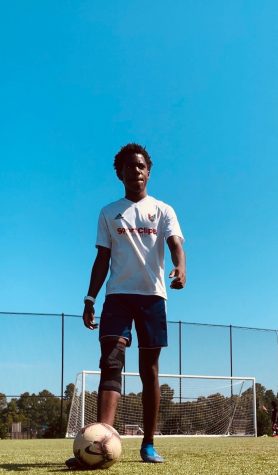
(He/him)
Philemon Emmanuel is a senior on the Eagle's Eye. He loves playing soccer, traveling, watching TV, and spending time with his friends and family.


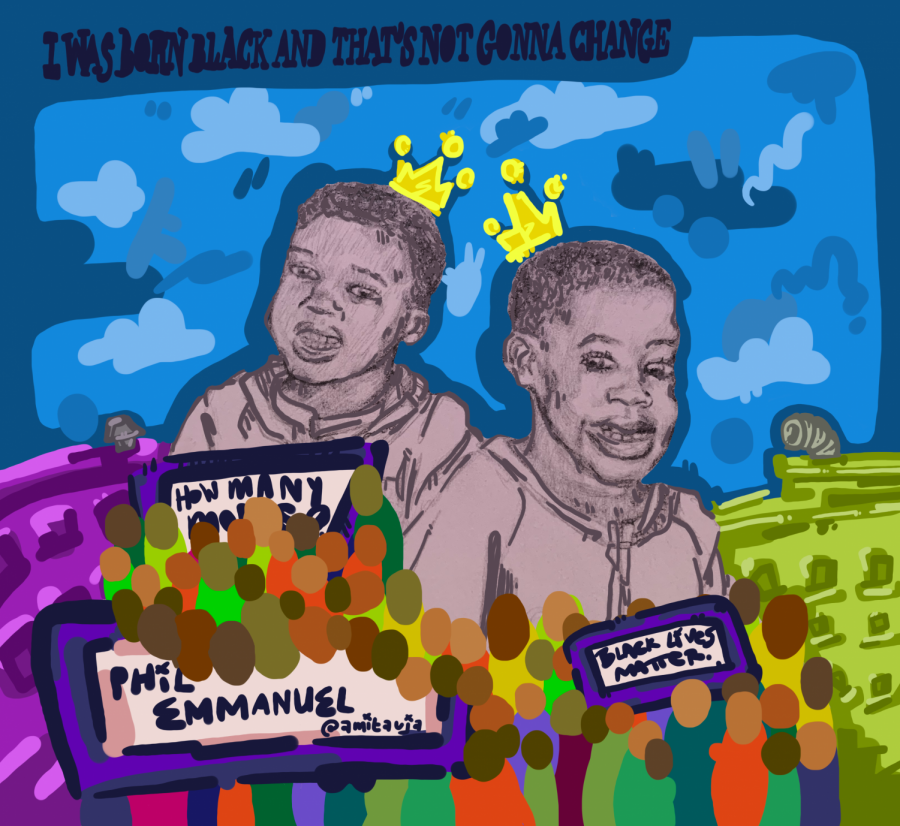
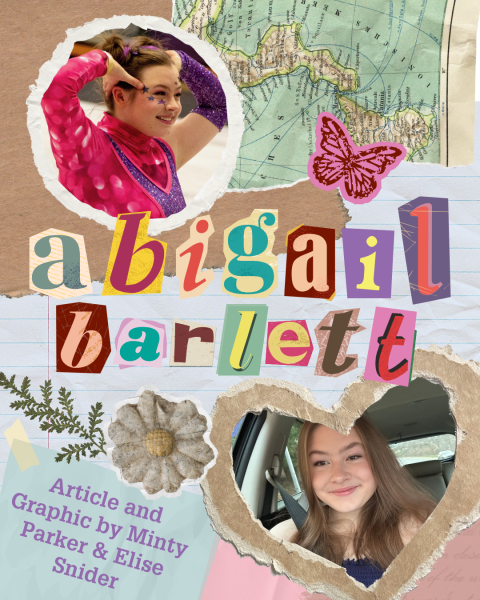


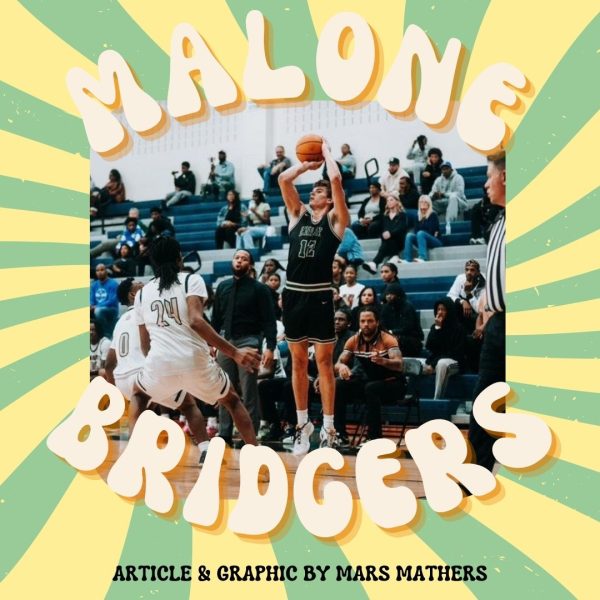

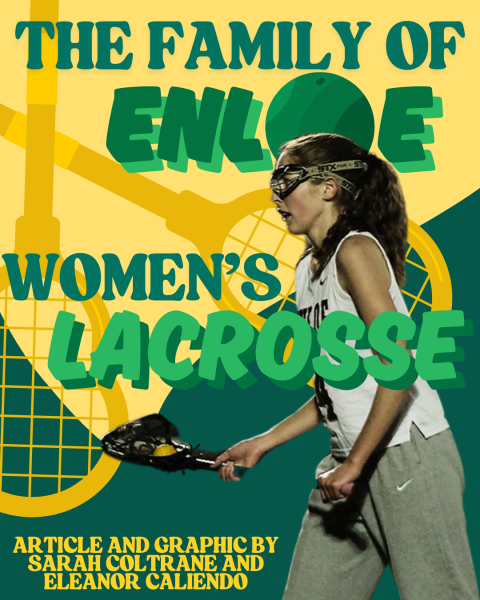


Kelissa • Dec 10, 2020 at 8:36 AM
Excellent article young man!!! Continue speaking your truth with your mighty pen!!